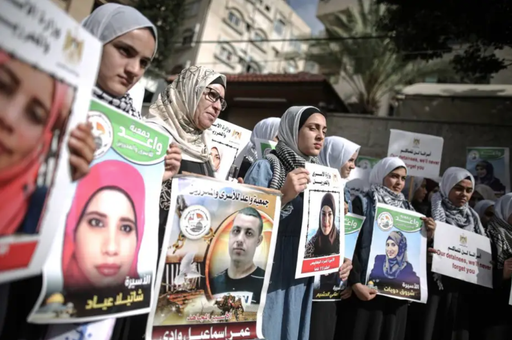Five Israeli soldiers recently shared harrowing accounts with the local newspaper Haaretz, revealing the harsh psychological toll and pervasive fear gripping troops during the ongoing Gaza genocide, their testimonies contrasting sharply with the official military narrative.
Twenty-year-old Or, a paratrooper reconnaissance soldier, recounted approaching the ruins of a home in Khan Younis targeted by Israeli air strikes.
“In the debris, what were once walls, we suddenly found five, maybe six bodies. There were flies everywhere, and I think dogs had torn at the flesh. There was barely anything left,” he said.

“Two of them were small children, and I saw their bones. It was horrible, unforgettable, something that still haunts my nights,” he added.
“I remember the smell; it took over my body and clung to my clothes. Even after I sprayed myself with deodorant nonstop that night, it wouldn't leave me,” Or said.
He was redeployed to the Gaza border days later without a set return date.
“We packed the gear and loaded it up quickly onto the Humvees that took us back in. I wanted to jump off. I wanted to run, but I didn't have the guts,” he added.
Or described enduring “Another week of explosions. Another week of socks glued to my skin, of heat I can't even describe. A living nightmare. I want it to be over already, please.”
The trauma
Haaretz noted that most soldiers declined to share their stories, but the five who did asked one thing: “You sent us to war; now listen to what we have to say.”
The testimonies depicted “mounting exhaustion, severe physical and psychological strain, and a constant fear that they'll be the next to have their names released as fallen.”
Yonatan, 21, from the Kfir Brigade, described his experience in Jabalia in northern Gaza last November.
“During the day, the heat was unbearable. At night, we froze. Sand and dust clung constantly to my skin. We hardly saw any people, just dogs roaming everywhere.”
“Our company commander warned us that anyone who so much as petted them would face a court-martial and end up in jail. But I didn't care. When no one was looking, I'd sneak them slices of sausage.”
Yonatan recalled the deputy commander shooting at the dogs, calling them “terrorist dogs, probably rabid,” and insisting they learn not to approach them.

His most traumatic memory came days later, during a house-clearing mission.
“The next morning, we were sent on another house-clearing mission. We scanned the building with a drone and didn't see anything, so we went in. Two minutes later, there was an explosion. The blast threw me through the air, and I couldn’t understand what had happened,” he said.
“Suddenly, I realised my mouth was full of blood. I thought I was wounded, but I wasn't; it was the blood of my best friend in the unit. He kept calling my name, begging me to help, but I didn't know what to do. I froze.”
Medics evacuated his comrade, but Yonatan struggled with insomnia and loss of appetite for days, saying, “Everything tasted like blood.”
‘Please stop’
Twenty-two-year-old Uri from the engineering unit Yahalom said he lost faith in the war.
“At some point, I just stopped believing in what we're doing. During the first year, I was all-in, committed to every mission. I believed we were part of something historic, that we were protecting Israeli civilians, and that we were helping to rescue the hostages.
“But little by little, I started to doubt it. After you hear about another hostage killed because of an air strike, after you attend yet another funeral for a friend, it just starts to fade,” he added.
He said he can no longer perform missions, re-enter familiar areas, inspect tunnels, or enter potentially booby-trapped buildings.
“Anyone with half a brain can see this war is continuing for political reasons. There’s no reason to keep going. We’re not achieving anything; we’re just risking our lives over and over again.”
Israeli opposition parties accuse Prime Minister Benjamin Netanyahu of prolonging the war in Gaza to maintain political power and appease his far-right coalition partners.
Addressing Netanyahu, Uri said, “When will you understand that it's time to end this? When are there 900 dead? A thousand? Please—stop.”




















